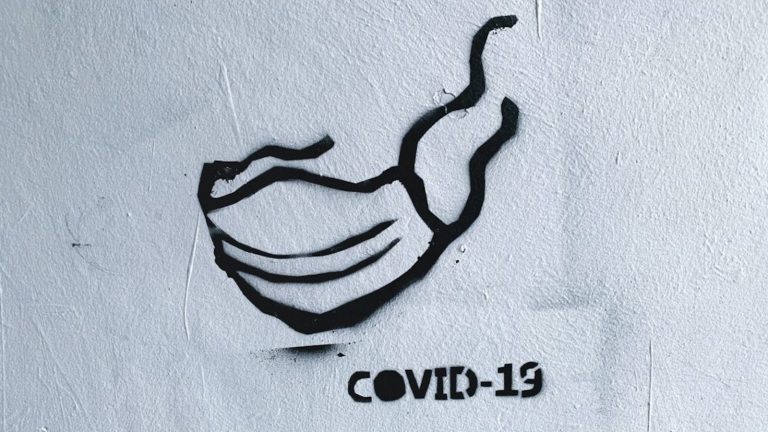Of the entire blooming Substack industry, one standout stack is Addison Del Mastro’s archeological explorations on modern urbanism, wistfully titled “The Deleted Scenes.” Del Mastro cut his teeth writing on human-scale neighborhoods in The American Conservative. He once succeeded in provoking entitled D.C. office-grunts by assailing that most cherished of millennial rites: brunch. (Years after, I remain jealous of the ire he inspired. Judge a man by his enemies, indeed!)
But in a recent post, Del Mastro ventures out of his lane of thoroughfares and collector roads to pronounce on what he views as right-wing COVID callousness. Riffing off a piece of a piece of the same theme, Del Mastro mounts a hard-nosed assault on what Walker Percy called “angelism,” that is, too much argumentative abstraction. The anti-Hamlet, Del Mastro says sorry, brainy theorists, there are not more things in heaven and earth. Stick to the practical!
“I’ve noticed a tendency to turn the very real and pressing situation we were facing into a very abstract thought experiment, divorced from the real questions, trade-offs, situations, and incentives that individual human beings faced and face every day,” Del Mastro explains regarding the pandemic. His target is the increasing number of right-of-center scribes attempting to write off—that is, use the English language to shame and demean and dismantle—the last vestiges of the COVID regime. But his bother with anti-Covidism hasn’t just started. Nor is Del Mastro one of those Purell-gargling Branch Covidians who draws moral equivalence between mask-less infants and Satan. His objection has been consistent, dating back to those uncertain days of March 2020 when everyone but mad-eyed cranks accepted forced hibernation, all the way through to today, when even the most liberal politicians can barely muster masking up.
Del Mastro’s concern isn’t with the QAnon fanboys speculating that China and a faceless hematophagic cabal conspired to unleash a fake respiratory virus on the world. What really chaps his nerves is those who have turned the entire pandemic response into an “abstract, head-in-the-clouds thought experiment.”
The two biggest offenders: Matthew Schmitz and Rusty Reno of First Things. Some background for the unfamiliar: Schmitz and Reno aren’t run-of-the-mill conservative ink spillers, nor MAGA sycophants. They’re Catholic liberal skeptics, critical of all classical liberalism cognates, including progressivism and neoconservativism. Schmitz protested church closures at COVID’s outset; Reno wrote blistering dispatches during the first primaveral lockdowns and even went on a Twitter tirade against masks, for which he later apologized.
Del Mastro wasn’t for shuttering houses of worship (the fact that we permitted church closers while letting cheeba c-stores carry on like normal was a damning revelation of our priorities). Moreover, while he finds Reno’s COVID carping objectionable—at least uncaring, maybe even immoral—that’s not his beef. It’s the entire way Schmitz and Reno lodged their protestations. They used too much of that highfalutin, high-horse, college-learnin’ blabbering ‘bout nuthin’!
Per Schmitz, Del Mastro writes, “My issue, rather, is with [his] turgid, heavy, obscurantist tone, veiled in the appearance of metaphysical and philosophical inquiry.” This is an ironic shot, if only because he decries twenty-five-cent words while using adjectives like “obscurantist” and “turgid.” Schmitz’s article isn’t even loaded with scholarly vernacular. He cites Decartes’s emphasis on health as a primary value, then rejects the subordination of “the spiritual to the temporal.”
Schmitz is making a metaphysical argument, invoking St. Augustine’s orders of love. This shouldn’t be unfamiliar framing for a Catholic like Del Mastro. It’s basic Maslow’s pyramid stuff: putting physical needs ahead of transcendence. Agree or disagree with the approach, but it’s not a tough conceptual nut to crack.
Reno made a more allusive point: “When we worship, we join the Christian rebellion against the false lordship of the principalities and powers that claim to rule our lives, including sickness and death.” I concede this is wordy. But Christians believe Christ won out over death. The entire Triduum commermation—sunrise service, plastic eggs, chocolate bunnies—is devoted to ending the forever dirt nap.
Again, it’s basic Christian theology wrapped up and presented in prose fitting for periodical writing. Is Reno just toying with a “head-in-the-clouds thought experiment”? Well, not to be too blithe, but yes. Faith—particularly the Christian faith with its heavy symbolism of pearly gates and heavenly hosts—is a willed thought experiment about eventually getting your head in the clouds, namely to ask St. Peter to validate your somatic parking before entering the final fiesta.
Inserting theology into medical guidance isn’t a new concept. Thousands of Catholic, Methodist, and Baptist hospitals across America provide palliative care in line with their respective beliefs. We aren’t talking about a return to Puritan Massachusetts where the local magistrate orders a haberdasher in the stocks for violating a divine precept on price-gouging.
What Del Mastro is really put off by is the en vogue conservative tendency to bash “safetyism.” We’re all safetyists now, says Del Mastro, just as we’re all Ukrainians when Russia gets pushy. Or Georgians. Or Syrians. Or whomever is under assault from the latest death dealers, tyrant and virus alike. “[It] is meaningless to talk about the necessity of risk or little trials for the soul or tools like masks as symbols of this or that ideology. When the rubber meets the road, everybody is a ‘safetyist’ for the things that scare them.”
Fair enough. Del Mastro’s Burkean sentiment is one many conservatives can agree with. Can doesn’t mean should, however. Conservatives are anti-ideology because ideology often demands purity and logical conclusion, which leads to zany and bloody things like dispatching millions in pursuit of material equality. And in a foggy, potentially catastrophic, situation like a rapidly spreading lung-clogging bug, it’s practical to batten down the hatches.
But we’re two years on from the days of bathing groceries in disinfectant. COVID has not only proven enduring, but also endemic. We have vaccines, which render non-association dictates useless. The science of masking remains questionable at best. Requiring children don masks in school—a practice absent in other industrial countries—hinders social development.
At this point, practicality dictates that the immunocompromised and Twitter hypochondriacs stay shut in for life, if they so choose. Live and let live, tolerance, plurality, horses for courses, and all that.
But there’s something missing from bare health considerations, which is what Reno and Schmitz were driving at. Just as how, in Ian McGilchrist’s cerebral formulation, the left brain’s material focus needs the right brain’s holistic modeling, governing needs to be both grounded in everyday concerns as well as high theory. Practice needs purpose. If that sounds obscure, that’s because I’m trying to describe something ineffable. Values, morality, and teleology are all difficult to pin down via language, which evolved first to suit base communication, not facilitate grad-seminar arguments over natural law.
What Del Mastro doesn’t want to hear are loftier arguments about freedom, and how government restrictions can imperil personal liberty in the long term. But America was built on those arguments—the disputations between federal and decentralized power is at the heart of our Constitution. Control-freak executives like Governor Andrew Cuomo massed their authority in COVID’s wake without any guarantee they’d surrender it when the virus subsided. Even in life-or-death situations, the metaphysical arguments that undergird our rights shouldn’t be paused. Every war-waging dictatorship in the 20th century was established on the back of an emergency. It’s naïve to assume it can’t happen in America.
Abstruse discourse may not seem practical in the present, but, like the Carter Family sang, you’ll miss it when it’s gone. Does Del Mastro enjoy removing his shoes at the airport? Twenty years after Richard Reid tried firing his Skechers, that tricorner-wearing gentleman in breeches and a doublet yammering about the Fourth Amendment may not seem so crankish after all.














[…] Mastro has long argued against what Walker Percy termed “angelism,” that is the “excessive abstraction of the self […]